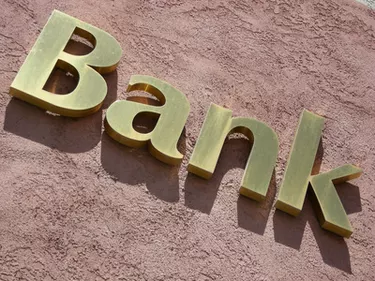
The main purpose of any bank is to make money. To this end, all banks, both commercial and merchant, provide loans and financial services. The main difference between a commercial bank and a retail bank is the type of clientele it primarily serves. Commercial banks, sometimes referred to as retail banks, tend to focus on the community, i.e., the needs of individuals and small businesses. Merchant banks, also called investment banks, tend to focus on the needs of large corporations.
Function
Video of the Day
When one thinks of a commercial bank, one thinks of such services as checking and savings accounts, loans, credit cards, and lines of credit to businesses and individuals. Commercial banks sell investments, such as certificates of deposit, and provide brokerage services to individuals for buying and selling stocks. Retirement plans, college savings programs and financial planning services are also offered by commercial banks.
Video of the Day
Merchant banks act as financial consultants to large companies. These banks offer advice to companies seeking to become larger by means of mergers or acquisitions. Rather than making loans, merchant banks often invest their own money into their customers' businesses, back stock transactions and manage large amounts of money for their customers.
How They Make Money
Commercial banks earn revenue by making auto loans, issuing mortgages, and by providing small business and home improvement loans. When you take out a loan, the interest you pay on the money is income for the bank. In addition, fees on your checking account, ATM charges and safety deposit box rental all contribute to a commercial banks' bottom line.
By contrast, a merchant bank makes much of its profit from fees it charges its large customers for the services it provides. Often, these banks invest large amounts of capital into growing private companies, then benefit by selling their stake once the company's value has been maximized.
Effect on the Economy
A commercial bank has an impact on the economy of the local area it serves. Money that is loaned by the bank is spent by consumers for cars, homes and other items that increase business in the community. Commercial banks provide loans to individuals, as well as nearby small- and medium-sized businesses that use the money for expansion and job creation.
Merchant banks have an impact on the value of the large corporations they provide services to, which affects the national economy and stock prices.